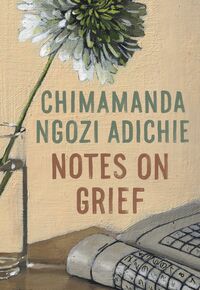Take a photo of a barcode or cover
reflective
sad
fast-paced
emotional
hopeful
reflective
slow-paced
emotional
reflective
sad
medium-paced
An absolutely beautiful book about grieving for the loss of a parent. It is raw, unfiltered, and each small note is a poignant reflection of the way grief attacks you.
reflective
sad
tense
fast-paced
emotional
sad
medium-paced
emotional
reflective
sad
fast-paced
It feels like an incredibly charmed life to have never known grief until you're in your 40s. And to be so taken aback about the death of a man who was 88 years old seems either deluded or intensely optimistic. Like the author was really going through it but these facts kept distracting me from her intense feelings.
I think my main bugbear (and I'm aware this is a personal problem) is that I'm being reminded heavily of my own mother. Personal story time: My mother's father died when I was 5 years old - my mother would've been 37 years old. He was in his 70s. He'd had many, many heart problems in the years prior (he refused to quit smoking, drank to excess most nights and wouldn't cut down his salt intake) and he passed peacefully in his sleep. My mother used her grief to cut my dad's parents off from our lives because they sent a condolence card addressed from "mum and dad" because that's what she'd been calling them for over 10 years at that point. I didn't see my own grandparents for over 5 years because of my mother's emotional inability to process grief in a reasonable way.
Yes, it's heart-breaking that the author loved her father so much. And this a loving and beautiful tribute to her father, who seemed like a great man. But I don't feel like it's the universal experience that the author clearly believes it to be; this uncomplicated love and grief with no petty grudges or grievances against the dead. The existence of this book implies she's putting pen to paper in catharsis to write down the grief that all humans experience, but I've never met anyone in real life that didn't feel some small measure of relief at an elderly relative passing because the worry is over. And the fact that her grief has given her rose tinted glasses to the extent that she can't recall a single negative memory to pull out of the depths is bizarre to me, and it doesn't feel like the true experience of grief. It feels 2D when grief should feel 3D by definition. Maybe I'm the one who's weird though.
I should probably stop reading this author's essays because I find her to be very lecturing, as if her opinion is the only one that matters., as though she speaks for the entire human experience in her work.
I think my main bugbear (and I'm aware this is a personal problem) is that I'm being reminded heavily of my own mother. Personal story time: My mother's father died when I was 5 years old - my mother would've been 37 years old. He was in his 70s. He'd had many, many heart problems in the years prior (he refused to quit smoking, drank to excess most nights and wouldn't cut down his salt intake) and he passed peacefully in his sleep. My mother used her grief to cut my dad's parents off from our lives because they sent a condolence card addressed from "mum and dad" because that's what she'd been calling them for over 10 years at that point. I didn't see my own grandparents for over 5 years because of my mother's emotional inability to process grief in a reasonable way.
Yes, it's heart-breaking that the author loved her father so much. And this a loving and beautiful tribute to her father, who seemed like a great man. But I don't feel like it's the universal experience that the author clearly believes it to be; this uncomplicated love and grief with no petty grudges or grievances against the dead. The existence of this book implies she's putting pen to paper in catharsis to write down the grief that all humans experience, but I've never met anyone in real life that didn't feel some small measure of relief at an elderly relative passing because the worry is over. And the fact that her grief has given her rose tinted glasses to the extent that she can't recall a single negative memory to pull out of the depths is bizarre to me, and it doesn't feel like the true experience of grief. It feels 2D when grief should feel 3D by definition. Maybe I'm the one who's weird though.
I should probably stop reading this author's essays because I find her to be very lecturing, as if her opinion is the only one that matters., as though she speaks for the entire human experience in her work.
challenging
emotional
sad
medium-paced
emotional
sad
fast-paced
emotional
reflective
sad
medium-paced
reflective
sad
fast-paced





